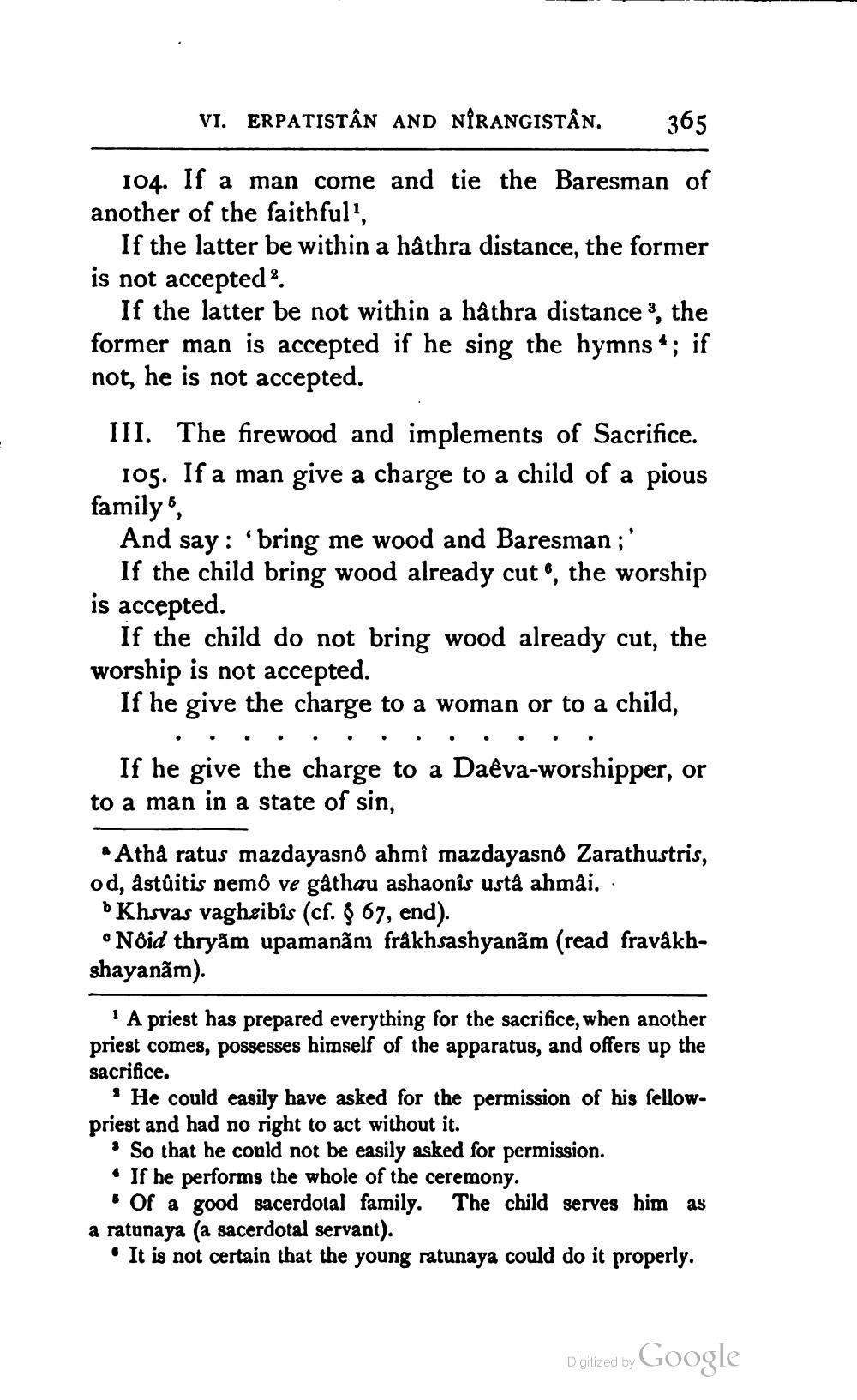________________
VI. ERPATISTÂN AND NÍRANGISTÂN.
365
104. If a man come and tie the Baresman of another of the faithful,
If the latter be within a hâthra distance, the former is not accepted
If the latter be not within a hathra distance, the former man is accepted if he sing the hymns *; if not, he is not accepted.
III. The firewood and implements of Sacrifice.
105. If a man give a charge to a child of a pious family,
And say: 'bring me wood and Baresman;'
If the child bring wood already cuto, the worship is accepted.
If the child do not bring wood already cut, the worship is not accepted.
If he give the charge to a woman or to a child,
If he give the charge to a Daêva-worshipper, or to a man in a state of sin,
Athå ratus mazdayasnô ahmî mazdayasnð Zarathustris, od, astüitis nemô ve gåthau ashaonis ustå ahmâi.
Khsvas vagheibîs (cf. $ 67, end).
Nóid thryam upamanām fråkhsashyanām (read fravákhshayanām).
A priest has prepared everything for the sacrifice, when another priest comes, possesses himself of the apparatus, and offers up the sacrifice.
• He could easily have asked for the permission of his fellowpriest and had no right to act without it.
So that he could not be easily asked for permission. • If he performs the whole of the ceremony.
• of a good sacerdotal family. The child serves him as a ratunaya (a sacerdotal servant).
• It is not certain that the young ratunaya could do it properly.
Digitized by Google




